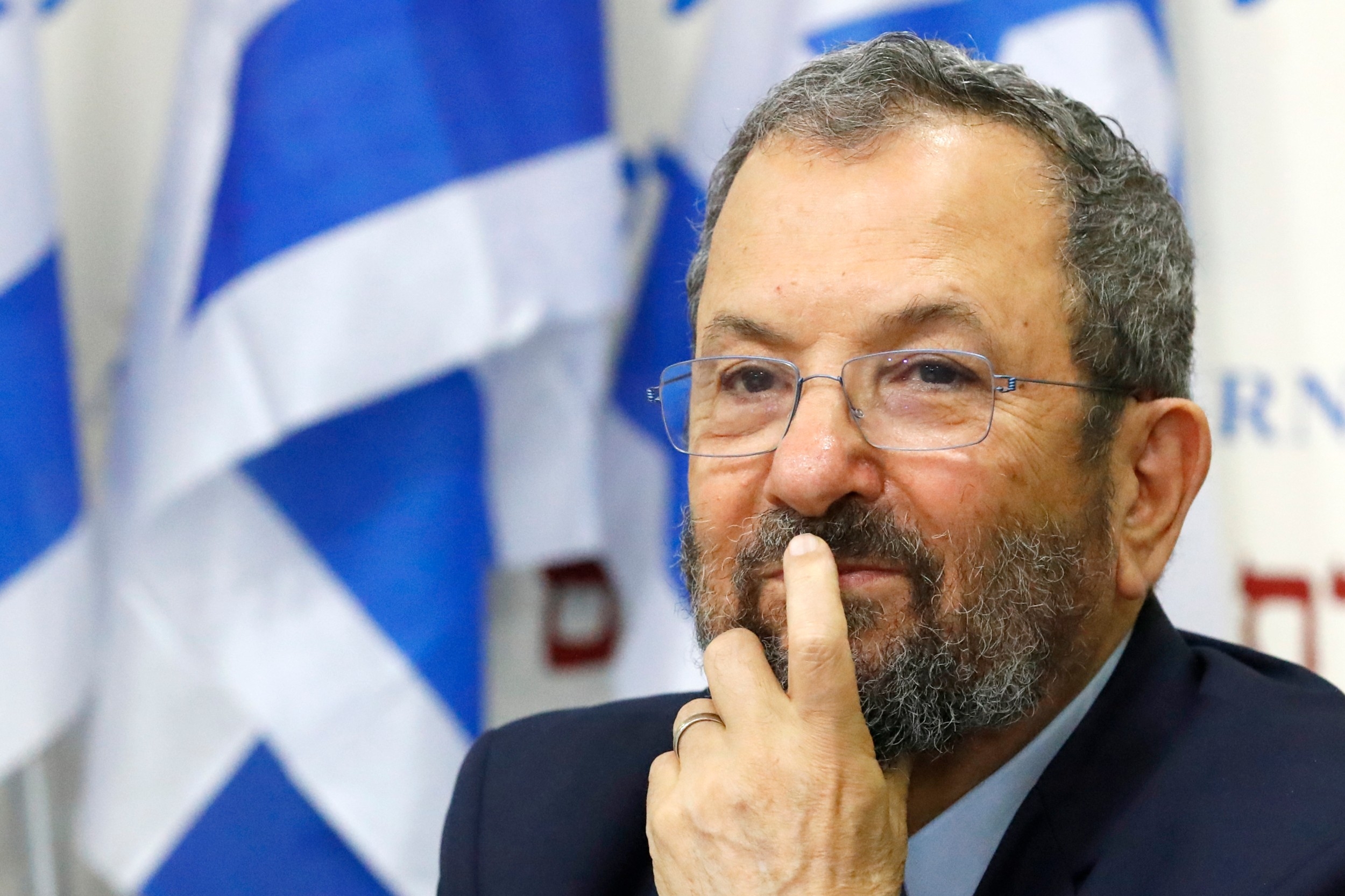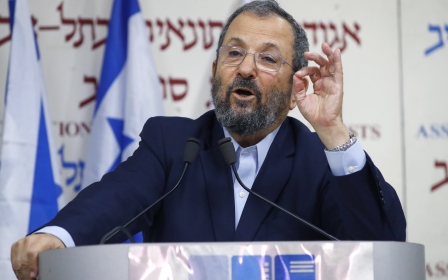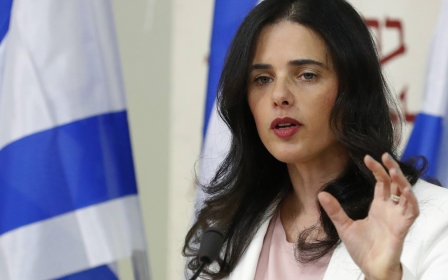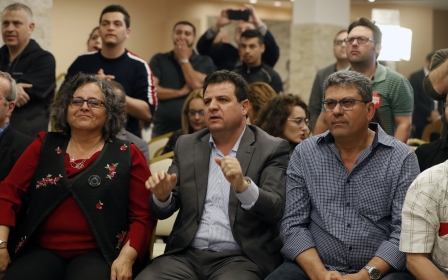Former Israeli PM Ehud Barak announces alliance with Meretz party

Israel’s Meretz and the new party of former prime minister Ehud Barak announced on Thursday that they had formed an alliance ahead of September's general election.
While the creation of the Democratic Union is not expected to constitute a major threat from the left to incumbent premier Benjamin Netanyahu's rule, it comes amid a series of political splits and alliances across the Israeli political spectrum in the past several months.
Meretz barely passed the threshold in polls held in April, which saw Netanyahu and his right-wing and religious allies far ahead of Israel's left-wing, centrist and centre-right parties.
However, Israel's parliament, the Knesset, called a new vote when Netanyahu failed to form a majority coalition after the election.
In late June, Barak - who was prime minister when the Second Intifada erupted in 2000, and served as defence minister under Netanyahu from 2007 to 2013 - returned to politics to form the Democratic Israel party.
New MEE newsletter: Jerusalem Dispatch
Sign up to get the latest insights and analysis on Israel-Palestine, alongside Turkey Unpacked and other MEE newsletters
A few days ago, Barak apologised for the killing of Palestinian citizens of Israel under his premiership in 2000, but the Palestinian community in Israel - which represents some 20 percent of the country's population - has rejected this apology as too little, too late.
Opinion surveys predicted that Barak's party would not score enough votes to make it into parliament come September.
Netanyahu’s opponents have scrambled since the announcement of a new poll to reorganise and score better results this time around.
"The initiators of the union believe that forming the Democratic Union is the first and crucial step in the mission of bringing Israel back on track," a statement from the newly formed alliance said.
The union will be led by newly elected Meretz head Nitzan Horowitz, with Barak taking the tenth place on the list, meaning the slate would have to win 10 seats in the Knesset for him to enter parliament.
The creation of the Democratic Union was facilitated by Stav Shaffir of Labor, who will receive the second place on the union electoral list. Shaffir's move is a split with Labor head Amir Peretz, who recently rejected the notion of joining forces with Meretz.
Only recently named to lead Labor, Amir Peretz has already been heavily criticised for his decision to invite politician Orly Levy-Abekasis to join the party, whose right-wing positions have been viewed by many as incompatible with Labor’s political stance.
Meanwhile, the country’s Union of Right-Wing Parties is also undergoing upheaval. Former justice minister Ayelet Shaked is reported to be vying for leadership of the union, currently headed by Rafi Peretz, a rabbi and former pilot who recently caused controversy over statements he made about conversion therapy for gays, the annexation of the occupied West Bank, and apartheid.
Meanwhile, leadership for Palestinian citizens of Israel has found itself further sidelined in the political conversation.
The Joint List had been the third-largest group in parliament following elections in 2015, but in February the group split into two electoral alliances, with the Hadash and Taal parties in one group, and Balad and the United Arab List in the other.
In June, the four parties announced that the Joint List would be resurrected ahead of the September vote.
However, the parties have thus far failed to reach a final agreement officialising the reunion - leading Hadash parliamentarian Yousef Jabareen to bemoan the continued stalemate among Palestinian-led parties while other Israeli political alliances were solidifying.
Translation: Alliances on the left and alliances on the extreme right. What about us on the Joint List? Today seems to be a fateful day. The discussions should continue until white smoke rises. We must unite forces against rising racism, the [Jewish] nation-state law, and the continued demolition of houses in Arab [Palestinian] communities. The electorate demands unity - the public must accept it. And fast!
Netanyahu over the weekend surpassed founding father David Ben-Gurion as Israel's longest-serving prime minister, first at the helm between 1996-1999 and then again since 2009.
His latest apparent victory in the April polls turned sour after he failed to form a coalition government.
The premier faces the new general election on 17 September while under threat of possible indictment for bribery, fraud and breach of trust in the months ahead.
Middle East Eye delivers independent and unrivalled coverage and analysis of the Middle East, North Africa and beyond. To learn more about republishing this content and the associated fees, please fill out this form. More about MEE can be found here.




